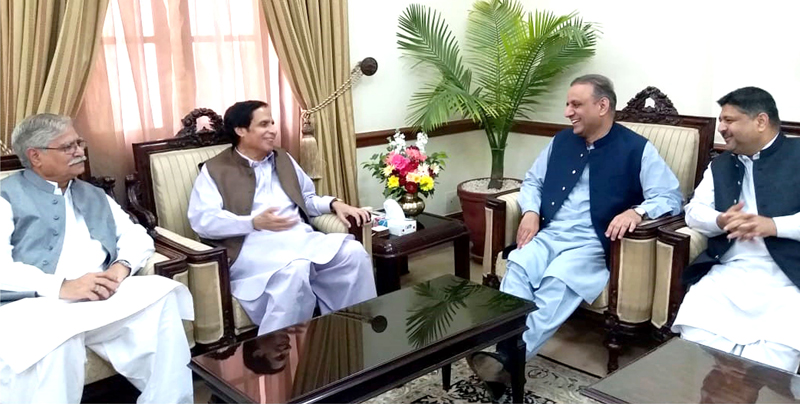LSE hosts annual conference to investigate key economic challenges


LSE’s annual conference on the management of the Pakistani economy, themed, “Economic Challenges in a Changing National and Global Environment” started on Wednesday.
The conference includes six sessions to investigate key challenges that Pakistan’s economy is facing, especially on fiscal fronts. More precisely, the regular sessions during the conference include twenty-one papers.
LSE Rector, Dr Shahid Amjad Chaudhry extended a warm welcome to the esteemed audience, including eminent scholars, policy-makers, academicians, students and other dignitaries, in the welcome remarks.
Dr Chaudhry stated that the key challenges faced by Pakistan’s economy remained burgeoning fiscal and current account deficits; inadequate revenue generation and sluggish economic growth. To address these challenges, the government needs to introduce measures to boost revenue, contain the current account deficit and revive economic growth.
Together with the short-run policy adjustments in the form of monetary tightening, exchange rate adjustment and negotiating a bailout package with IMF to restore market confidence and secure medium to long term funding for the balance of payments support, the government needed to introduce comprehensive reforms to promote macroeconomic stability and foster long term sustainable growth.
Pak economy burdened by burgeoning fiscal, current account deficits: Rector
Talking about the conference, he briefly introduced the audience to the six sessions, which include macroeconomic stability; public finance in Pakistan; the balance of payments challenges, agricultural sector; trade policy and the prospects of CPEC.
Graduate Institute of Development Studies Director, Prof Dr Rashid Amjad presented a paper, “Breaking out of Pakistan’s stop-go economic cycles: Does the fiscal deficit hold the key 1999-2019?”The paper investigated Pakistan’s economic performance during 1999-2018 to identify the main growth trends and the factors responsible for the overall poor growth performance in the period. It showed that the fiscal deficit had a negative impact on economic growth. The value of the current-account deficit was said to be negative and significant during the period 2001-2018.
Dr Moazam Mahmood and Shamyla Chaudry presented another paper, which observed that there remained large capital outflows in the country and proposed the controls of capital for stabilising the economy.
Another paper was presented by LSE Dean of Economics, Dr Azam Chaudhry and Gul Andaman. The paper noted that instead of relying on exchange rate depreciation, the long-term solution for Pakistan remained its transition towards higher value-added exports. Another paper by Moazam Mahmood and Azam Chaudhry shared a GE Macro model for Pakistan’s Economy, which was formulated by Lahore School of Economics research lab.
In the second session, chaired by Dr Rashid Amjad, Hafiz A. Pasha formulated proposals for higher recovery of taxes and for using the water rate as a mechanism for improved water efficiency.
Theresa Chaudhry proposed using nighttime light data to estimate subnational GDP and Growth in Pakistan
The third session of the conference focused on public finance in Pakistan.
Senior economist, Syed Kalim Hyder, presented a paper on external debt and applied a probabilistic approach to estimate future debt paths for Pakistan.
Federal Board of Revenue, Director-general, Dr Muhammad Ashfaq Ahmed provided a political economy perspective on Pakistan’s fiscal crisis management and contended that Pakistan’s fiscal woes were cast in the structural formation of the polity.
Catholic University of America’s Jamshed Y. Uppal co-authored a paper with Mahmood Khalid from Pakistan Institute of Development Economics to explore how Pakistan’s perennial fiscal deficits are rooted in its politico-economic institutions.
The last paper of the session and day one of the conference was presented by Ahmad Masood Khalid with Obiyathulla Ismath Bacha from International centre for education in Islamic Affiance, Malaysia. It proposed that the risk-sharing instruments would reduce pressure on interest rate changes and help provide stability to the exchange rate.
Day one ended with a lively and entertaining Conference Dinner.
The conclusion driven from all sessions was that economic policymakers in Pakistan must ensure careful management and monitoring of the fiscal deficit to keep it in check before the economy reaches a point when strong stabilization measures become inevitable.
Leave a Comment